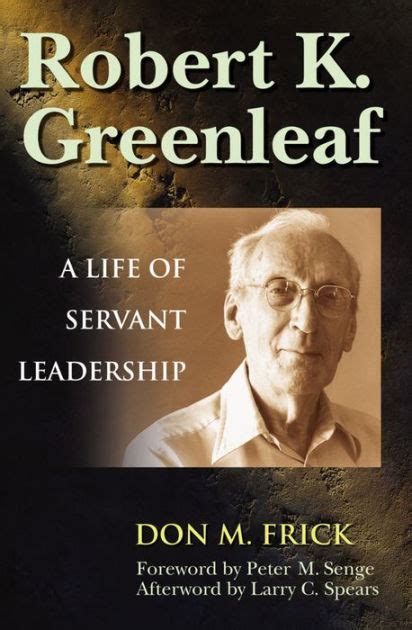A Quote by Punit Renjen
Leaders who understand the importance of the intangible elements contributing to workplace culture become sensitive to what makes their organization truly special. That is how they define core values and beliefs that are unique, simple, leader-led, repetitive, and embedded - transforming themselves from good to exceptional.
Related Quotes
The best leaders are clear. They continually light the way, and in the process, let each person know that what they do makes a difference. The best test as a leader is: Do those served grow as persons; do they become healthier, wiser, freer, more autonomous, more likely themselves to become leaders?
I've always felt there were aspects of me that were monstrous, and you can either hide from it or confront it, embrace it and understand that those are aspects that make you unique and define you and motivate you. You can either overwhelm or overcompensate for them -- but they truly define you as a human being...So that life became a question of either dealing with this monstrousness in one way or another...One finds a way to understand and make friends with that monster and understand that that's the very thing that makes you who you are. That's your emotional and spiritual fingerprint.
Believe it or not, entertainment is part of our American diplomacy, it is part of what makes us exceptional, part of what makes us such a world power. Hundreds of millions of people may never set foot in the United States, but thanks to you, they've experienced a small part of what makes our country special. They've learned something about our values. We have shaped a world culture through you...in a way that has made the world better.
This is what they have suppressed so long. This is why they are so afraid of the psychedelics, because they understand that once you touch the inner core of your own and someone else's being you can't be led into thing-fetishes and consumerism. The message of psychedelics is that culture can be re-engineered as a set of emotional values rather than products. This is terrifying news.
Our instructors do not understand how it is. To be bound to someone in such a way. They are too old, too out of touch with their emotions. They no longer remember what it is to live and breathe within the world. They think it simple to pit any two people against each other. It is never simple. The other person becomes how you define your life, how you define yourself. They become as necessary as breathing. Then they expect the victor to continue on without that. It would be like pulling the Murray twins apart and expecting them to be the same. They would be whole but not complete.
I think America's food culture is embedded in fast-food culture. And the real question that we have is: How are we going to teach slow-food values in a fast-food world? Of course, it's very, very difficult to do, especially when children have grown up eating fast food and the values that go with that.


































